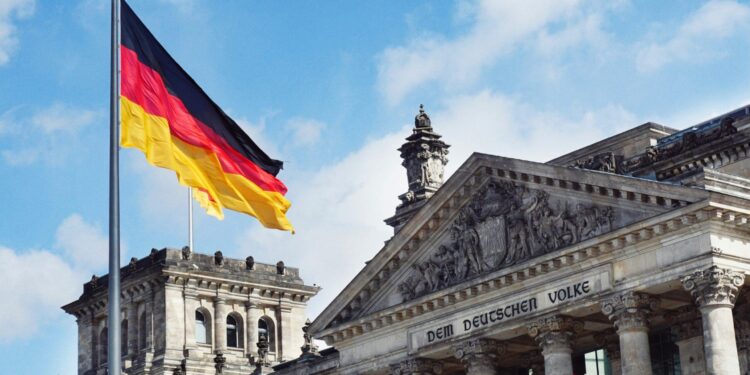Germany and France have intensified their call for the implementation of secondary sanctions against Russia as the conflict in Ukraine enters its latest phase. Amid ongoing diplomatic efforts and mounting geopolitical tensions, both European powers are urging the international community to tighten economic pressure on Moscow in response to its actions in Ukraine. The push reflects growing frustration in Berlin and Paris over Russia’s continued military aggression and aims to deter third-party actors from bypassing existing sanctions. This development marks a significant escalation in the West’s strategy to isolate Russia economically and politically.
Germany and France Accelerate Calls for Secondary Sanctions to Pressure Russia
Amid escalating tensions in Eastern Europe, Germany and France are intensifying efforts to implement secondary sanctions targeting entities and individuals connected to Russia’s war efforts in Ukraine. The move comes as both countries seek a more forceful economic response, aiming to disrupt financial networks and increase pressure on Moscow to reconsider its military actions. These sanctions would extend beyond direct trade restrictions, impacting third-party countries and companies that continue to engage with sanctioned Russian firms.
Key elements of the proposed sanctions include:
- Restrictions on banking transactions involving Russian-linked accounts outside Europe
- Ban on investments in sectors that fund Russia’s defense industry
- Penalties for firms circumventing existing sanctions through intermediaries
| Sanction Category | Targeted Sector | Expected Impact |
|---|---|---|
| Financial | International banking | Freeze of illicit funds |
| Investment | Defense & technology | Reduction of military financing |
| Trade | Third-party intermediaries | Disruption of supply chains |
Targeting Global Financial Networks to Weaken Russian War Effort
Germany and France have intensified their calls for secondary sanctions aimed at crippling Russia’s ability to finance its military operations in Ukraine. These measures target financial institutions and companies worldwide that continue facilitating transactions benefiting the Russian state, effectively expanding the reach beyond direct sanctions on Russian banks. By pressuring global financial networks, European capitals seek to tighten the economic noose and reduce Moscow’s revenue streams critical to sustaining the war effort.
The proposed sanctions emphasize vigilance against third-party intermediaries and complicity in evading existing restrictions. Key elements of the strategy include:
- Expanded asset freezes on entities linked to Russia’s energy sector
- Restrictions on international correspondent banking relationships
- Enhanced scrutiny on shell companies and opaque ownership structures
- Coordination with US and EU allies for simultaneous enforcement
| Sanction Focus | Expected Impact | Timeline |
|---|---|---|
| Financial Institution Blacklists | Reduced cross-border funding | 3-6 months |
| Energy Sector Asset Freezes | Lowered export revenues | Immediate to short-term |
| Supply Chain Disruptions | Hampered military procurement | 6-12 months |
Experts Recommend Coordinated EU Measures to Enhance Sanction Effectiveness
Leading analysts and policy specialists have underscored the necessity for a unified approach across the European Union to tighten the regime of sanctions currently imposed on Russia. They argue that fragmented enforcement and inconsistent application of restrictions among member states undermine the overall impact, allowing targeted entities to exploit loopholes. Experts propose a comprehensive framework that not only strengthens compliance mechanisms but also integrates real-time intelligence sharing to ensure swift responses to evasion tactics. This strategy aims to amplify economic and diplomatic pressure, compelling Moscow to recalibrate its stance on the Ukraine conflict.
Key recommendations emphasize the introduction of secondary sanctions – measures designed to penalize non-EU actors and financial institutions that facilitate prohibited transactions. These would act as powerful deterrents against circumvention of primary sanctions. Suggested priorities include:
- Enhanced monitoring of cross-border financial flows
- Standardized asset freeze protocols across all member states
- Dedicated EU task force for sanction compliance and enforcement
| Measure | Purpose | Expected Outcome |
|---|---|---|
| Real-time intelligence sharing | Prevent sanction breaches | Faster enforcement actions |
| Secondary sanctions | Deter third-party involvement | Broaden sanction reach |
| EU-wide compliance task force | Harmonize sanction policies | Eliminate regulatory gaps |
To Conclude
As Germany and France intensify their calls for secondary sanctions on Russia amid the ongoing conflict in Ukraine, the international community faces mounting pressure to unify its response. The proposed measures signal a deepening alignment among European powers seeking to escalate economic consequences for Moscow, while diplomatic efforts continue to navigate the complex geopolitical landscape. How these sanctions will impact Russia’s economy and the broader war remains to be seen, with global implications likely to unfold in the coming weeks.
















